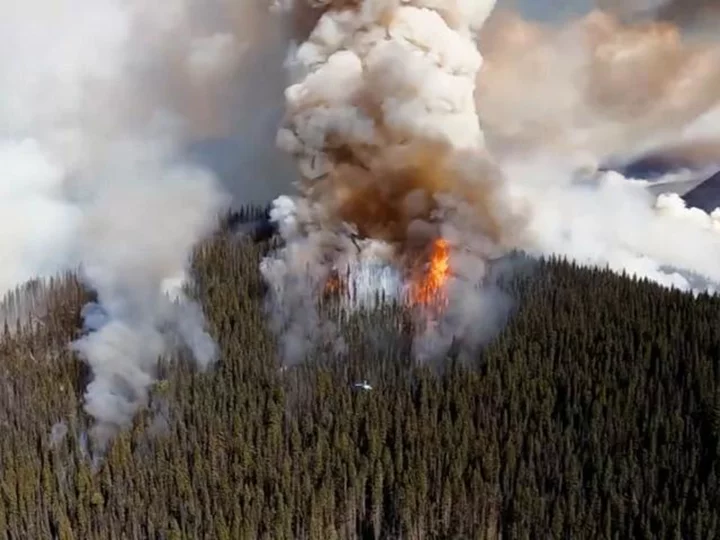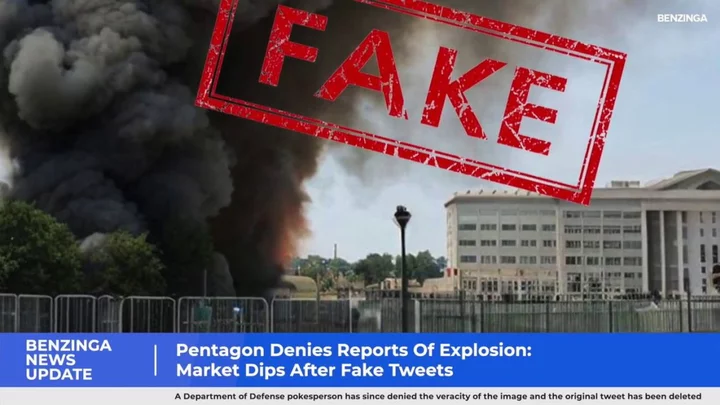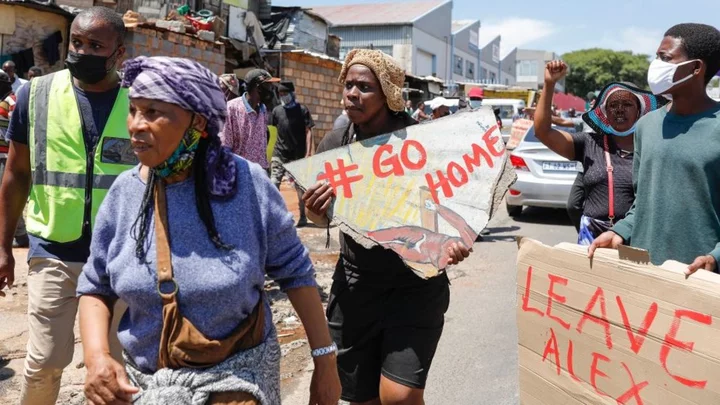By the time the Silver State Hotshot crew arrived from Nevada a few weeks ago, Canada's wildfires had already scorched millions of acres and shattered all-time burning records.
So everyone already knew what they were up against.
"In the scope for us, in the states, this would one of the largest fires to occur -- ever ... It's a gigafire," said Zac Krohn, a division supervisor with the US Forest Service as he briefed the hotshot crew on another steamy day in northern Quebec.
The firefighters on Saturday took in the instructions, suited up, shouldered axes and chain saws and hiked into burned and barren forests looking for dangerous hotspots still smoldering.
"At this point we're just trying to secure the edge and protect the community," said Krohn. There was no taming these wildfires now, they were too vast and too hot, he said.
Crews know the work will brutal: They have long days, as much as 16 hours, traveling to new areas detected as hotspots and sometimes hiking hours to get to them.
Canada is already on pace to have its worst wildfire season in recorded history and the season is little more than half over.
There are more than 880 fires burning throughout the country and the Canadian Interagency Forest Fire Centre says at least 580 of the current wildfires are "out of control," according to its website.
And the conflagrations are having an enormous impact on Canada's neighbor, as well: Forecasters predicted around 70 million Americans on Monday would see decreased visibility and poor air quality, including residents of Chicago, Detroit, New York, St. Louis and Cleveland.
"It's no understatement to say that the 2023 fire season is and will continue to be record-breaking in a number of ways," said Michael Norton, a director general with Canada's Northern Forestry Centre, during a technical briefing earlier this month.
"The total area burned now exceeds any year on record since we started measuring and keeping accurate records," he said.
According to data, this weekend the country set yet another record -- with nearly 25 million acres consumed, an area nearly the size of Ohio.
"When it's the year to burn and the conditions are right, it's just going to continue to burn. The best thing we can do as an incident management team is to focus on protection of people and communities," said Matt Rau, an incident commander with the Southwest Area Incident Management Team based in the United States.
For weeks now, Rau's hotshot crews have been scanning blackened and scarred forests from the air and on the ground trying to assess how best to protect people and property.
Amid the cliché on everyone's lips -- that Canada isn't out of the woods yet -- firefighters pitching in from all over the world are taking in the scope of this emergency.
The wildfires continue to defy history even though an increased number of firefighters and rainfall have managed to at least mitigate some of the damage. But the work is dangerous. On Sunday, Canadian authorities announced a second firefighter had died battling the wildfires.
Officials cautioned that any rain was like a drop in an otherwise empty bucket, with nearly every region in the grips of some stage of drought.
Temperatures were hotter than usual during the spring and severe weather and lightning strikes ignited forests already compromised by climate change.
"When they burn like this there's no way to even put people in front of it to stop the fire, there's no amount of resources on the ground or from the sky that's going to be able to stop of these fires when they get the momentum," said Rau.
His base of operations is in Lebel-sur-Quévillon, a Quebec town that has already evacuated twice since fire season started.
International crews from the US, South Korea, South Africa, Portugal and several other countries have pitched in, coordinating with Canadian resources that are already stretched.
And this weekend the Canadian government called in the military to help battle new blazes in western provinces. Bill Blair, the emergency preparedness minister, tweeted that he had approved a request for federal assistance and the armed forces would be deployed.
The town of Chibougamau, Quebec, is still on edge after evacuating the entire community of about 7,000 in a matter of hours in June.
Mayor Manon Cyr, on describing the decision to evacuate, said: "Strangely, I wasn't scared, I was mad. And then I have to calm down and say, 'Manon, you have a job to do. And that's why I said to my people let's stay calm, let's be patient, keep it Zen."
Residents have been back for weeks, but they know the threat will continue through summer, maybe longer.
"Don't be surprised if it continues and, secondly, this is a problem that is going to go on into the future," said Rau.
That also applies to US residents who once again this week will be dealing with air quality alerts, now from wildfires in Canada's west, he said.









